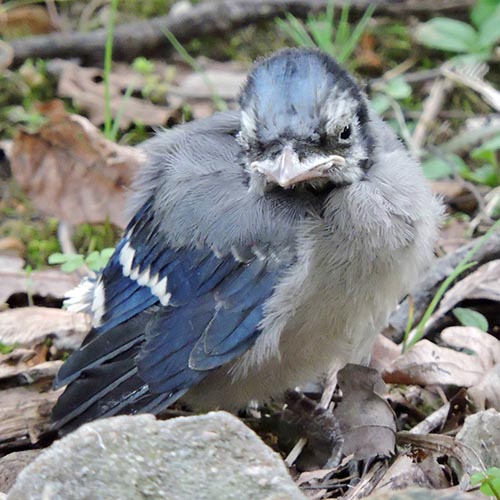
Listen to this Episode:
- From this webpage:
- Find the media player located under the episode picture.
- Click on the green triangle to listen to the audio for this episode.
- From your favorite podcast listening platform:
- Search for “Backyard Ecology.”
Show notes:
In the spring of 2021, reports started coming in of birds dying with weird eye and/or neurological symptoms. At first, it seemed like the bird mortality event was only in Washington, D.C., Maryland, and Virginia, but before long reports began to also come in from West Virginia, Delaware, New Jersey, Pennsylvania, Ohio, Indiana, Kentucky, Tennessee, and Florida. Researches and others from multiple state, federal, and private organizations and agencies have been working together to try and determine what is causing this mysterious bird mortality event.
In this episode of the Backyard Ecology Podcast, we talk with Dr. Brian Evans. Brian is an ornithologist at the Smithsonian National Zoo and Conservation Biology Institute. He has been involved with studying the bird mortality event at a regional level since soon after it started to be recognized as an issue. This is a very open and candid discussion about a subject that has garnered a lot of confusion and frustration in only a couple of short months.
Our conversation covers a wide range of topics related to what we know and don’t know, because at this point, what we don’t know about this mortality event far outweighs what we do know. That can be frustrating, but at the time of this recording, two months ago we knew absolutely nothing about this bird mortality event. Given that we’ve been building our knowledge from practically zero, we’ve actually learned quite a bit in a short time. It just doesn’t always feel that way, because there is so much more that we want and need to know.
In addition to talking about the bird mortality event itself, Brian and I also discuss what goes on behind the scenes when something like this happens. We would all love to be able to snap our fingers and have all the answers for what is causing this mortality event and how to stop it, but that’s not the way things work. We also know that this is not the first bird disease or mortality event to suddenly pop up, and it probably isn’t going to be the last. Similar things have happened with just about every other group of animals. So, having a basic understanding of what goes into studying and learning about something like this, can be very helpful for those of us who love wildlife and nature.
We also talk about some of the concrete action steps that we can take to help protect our birds and to help with the research. One of the points that Brian really wanted to highlight is how vital community involvement is to learning about this bird mortality event. Researchers need our help to determine the answers to even the most basic questions about this event. There is just so much that we don’t know and the more data the researchers have, the better chance they have of finding the answers that we all want to know. Reporting what we are seeing to the Smithsonian’s national database, and where appropriate, our individual states’ databases can go a long way towards helping them gather that data.
Links:
- Smithsonian’s National Zoo and Conservation Biology Institute’s National Reporting Data Base
- State pages and reporting systems as of this recording
- Also recommended by Brian
- Backyard Ecology’s website
- Backyard Ecology blog – https://www.backyardecology.net/blog/
- Backyard Ecology’s Patreon page – https://www.patreon.com/backyardecology
- Subscribe to Backyard Ecology emails – https://www.backyardecology.net/subscribe
- My email: shannon@backyardecology.net
Episode image:
- Juvenile blue jay
- Photo credit: Eileen Hornbaker, USFWS, public domain

Backyard Ecology: Exploring Nature in Your Backyard
Nature isn’t just “out there.” It’s all around us, including right outside our doors. Hi, my name is Shannon Trimboli, and I am the host of Backyard Ecology. I live in southcentral Kentucky and am a wildlife biologist, educator, author, beekeeper, and owner of a nursery specializing in plants for pollinators and wildlife conservation. I invite you to join me as we ignite our curiosity and natural wonder, explore our yards and communities, and improve our local pollinator and wildlife habitat. Learn more or subscribe to my email list at www.backyardecology.net.

Leave a Reply